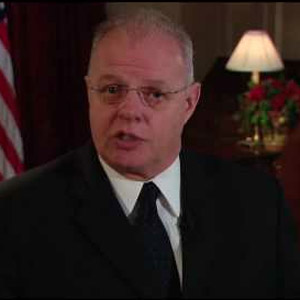 NEWS
NEWS
 NEWS
NEWS
 NEWS
NEWS
![]() The current two-time cybersecurity advisor and czar to the Obama Administration, Howard Schmidt, is retiring the White House announced on Thursday. He was named cybersecurity coordinator and special assistant to President Obama in late 2009.
The current two-time cybersecurity advisor and czar to the Obama Administration, Howard Schmidt, is retiring the White House announced on Thursday. He was named cybersecurity coordinator and special assistant to President Obama in late 2009.
Schmidt is a former Air Force officer and previously chief information officer at Microsoft making him a fairly good call for the job. Now that he’s stepping down, members of the White House are hoping that he stays on long enough to guide current legislation working its way through the House and Senate related to homeland cybersecurity.
His job of late has been overshadowed by another position, that of Keith Alexander, director of the National Security Agency and head of the military’s Cyber Command, especially with arguments about the role of the NSA and the Department of Homeland Security in cybersecurity.
With Schmidt stepping down from his position, he will be succeeded by Michael Daniel, chief of the White House budget office’s intelligence branch.
His stepping down from his office of two and a half years comes during a tumultuous time with cybersecurity with lawmakers and the executive branch of the government. Malware is on the rise, corporate espionage has been brought to the media as the next-big-narrative, Anonymous is used as a bogeyman…and CISPA passed the U.S. House. Said bill before the government is considered to be an unthinking disaster for cybersecurity by much of the security industry and privacy watchdogs.
We have even seen the rise of expectations that cybersecurity will take a fundamental role in future warfare and terrorism. As recently as November 2011, fears of cyberterrorism led to questions about a software failure at an Illinois water pump and possible sabotage; although that turned out to be an overreaction it raises questions about networked and Internet-wired infrastructure security.
According to The Washington Post, Schmidt will leave behind a legacy of newfound thinking about our nation’s cybersecurity:
During Schmidt’s tenure, the White House unveiled its first international strategy for cyberspace, which stated that the United States will respond to hostile acts in cyberspace as it would to any other threat to the country, reserving the right to use “all necessary means,” including diplomatic and military, to defend the country.
Schmidt also led the creation of the National Strategy for Trusted Identities in Cyberspace — a program aimed at developing methods for people and businesses to authenticate their identities online that are safer than using passwords, which can be stolen by hackers.
The United States’ growing dependence on digital networks for daily commerce, energy production and military operations has made cybersecurity a prime national-security issue.
Schmidt is 62 years old and has been at this job for over two years.
After retiring, he intends to spend more time with his family, ride his Harley-Davidson motorcycle, and settle down in his home near Seattle. He has extended family in Wisconsin, and looks forward to a sixth grandson on the way.
We at SiliconANGLE bit him a farewell and wait to vet the next chief of cybersecurity and see how they will shape our nation’s forward-looking policies.
THANK YOU